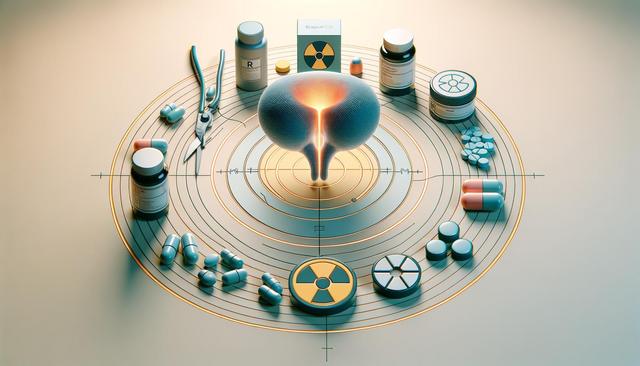What Is Prostate Cancer and Who Is at Risk?
Prostate cancer occurs when abnormal cells develop in the prostate gland, a small organ located below the bladder in men. This form of cancer is one of the most frequently diagnosed among men, particularly those over the age of 50. While early-stage prostate cancer often presents no symptoms, routine checks and screenings are essential for timely detection. If you are wondering about early detection, searching for ‘prostate screening near me’ can be a practical step toward proactive health care.
Risk factors for prostate cancer include age, family history, race, and lifestyle. Men with close relatives who have had prostate cancer are more likely to develop the condition. Additionally, African American men are statistically at a higher risk. While some risk factors cannot be changed, others—like diet and exercise—can be managed to help lower the risk.
Treatment Options for Prostate Cancer
There are several treatment options for prostate cancer, and the right choice depends on the stage of the disease, the patient’s age, overall health, and personal preferences. Common treatment methods include:
- Active surveillance or watchful waiting for slow-growing cancers
- Surgery to remove the prostate gland (prostatectomy)
- Radiation therapy
- Hormone therapy to reduce testosterone levels
- Chemotherapy for advanced stages
Each approach has potential benefits and side effects. It’s important to discuss all available treatments with a qualified healthcare provider. If you’re uncertain where to begin, you can book urologist for prostate check appointments to explore your options thoroughly and make informed decisions.
Diet and Nutrition’s Role in Prostate Health
Diet plays a crucial role in both prevention and recovery from prostate cancer. While no food guarantees prevention, incorporating certain items into your daily meals may support prostate function and overall health. The following are considered some of the best foods for prostate health:
- Tomatoes (rich in lycopene)
- Fatty fish like salmon (high in omega-3s)
- Broccoli and other cruciferous vegetables
- Green tea (contains antioxidants)
- Legumes and soybeans
These foods are known for their anti-inflammatory and antioxidant properties. Maintaining a balanced diet and avoiding excessive red meat, processed foods, and high-fat dairy can also contribute to long-term prostate wellness.
Supplements and Prostate Support
In addition to a well-balanced diet, some men explore supplements to support prostate health, especially after age 50. While it’s always best to consult a healthcare provider before starting any new supplement, many men consider options that are among the best supplements for prostate health. These often include:
- Saw palmetto
- Zinc
- Selenium
- Vitamin D
- Lycopene
These supplements may help reduce inflammation, support immune health, and maintain hormonal balance. However, supplements should not replace medical treatment or routine screenings. Regular check-ups and monitoring remain essential, especially for those with a family history of prostate issues.
Maintaining Prostate Health After 50
As men age, maintaining prostate health becomes increasingly important. Knowing how to keep your prostate healthy after 50 involves a combination of lifestyle adjustments, regular screenings, and being aware of bodily changes. Key strategies include:
- Staying physically active with regular exercise
- Eating a diet rich in vegetables, fruits, and healthy fats
- Limiting alcohol and maintaining a healthy weight
- Scheduling regular prostate exams and discussing any symptoms with a healthcare provider
Men over 50 should consider annual prostate exams as part of their preventive care. Early detection significantly increases the chances of successful treatment, and taking proactive steps can enhance quality of life in the long run.
Conclusion
Prostate cancer treatment and long-term health management require a balanced approach that includes medical care, dietary habits, and lifestyle choices. Understanding your risk factors and staying informed about available treatment options empowers you to make the best decisions for your health. Whether you’re looking into ‘prostate screening near me’ or simply exploring ‘how to keep your prostate healthy after 50’, taking action early can make a meaningful difference. Incorporating the best foods for prostate health and considering the best supplements for prostate health as part of your daily routine can also support your wellness journey. Don’t wait—book urologist for prostate check appointments regularly and prioritize your health today.




Leave a Reply